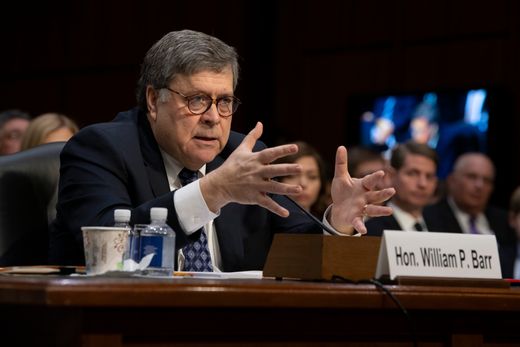President Donald Trump’s pick to become the next attorney general said Tuesday that he would “not go after” marijuana companies in states where cannabis is legal, even though he personally believes the drug should be outlawed.
In his testimony before the Senate Judiciary Committee, William Barr said he would not use limited government resources to target cannabis businesses that are complying with state laws. Businesses in the marijuana industry relied on Obama-era guidance that kept federal authorities from cracking down on the pot trade in states where the drug is legal, but those guidelines were rescinded by former Attorney General Jeff Sessions last year.
Pointing to the growing marijuana industry and investments in cannabis companies, Barr said he didn’t want to “upset settled expectations.”
“To the extent that people are complying with the state laws, distribution and production and so forth, we’re not going to go after that,” Barr said.
Despite his affirmation that he would not target cannabis businesses, Barr said he would personally support a federal law that “prohibits marijuana everywhere.”
The largely hands-off approach to marijuana enforcement set forth during former President Barack Obama’s administration allowed the marijuana industry to flourish into a sophisticated, multimillion-dollar market that helps fund some state government programs. Days after California’s broad marijuana legalization went into effect, Sessions rescinded the Justice Department’s guidance — known as the Cole Memo — and decried it as allowing a “safe harbor” for marijuana by allowing states to flout federal law.
Since the guidance was rescinded, there has been concern about the future of the growing cannabis industry. Despite medical and so-called recreational cannabis legalization in dozens of states, federal law prohibits the possession and sale of marijuana.
But Barr said the current system is “untenable” and “almost like a backdoor nullification of federal law.” He called for members of Congress to come up with a way to handle marijuana enforcement across the U.S.
“I think it’s incumbent on the Congress to make a decision as to whether we are going to have a federal system,” he said. “Because this is breeding disrespect for the federal law.”
(AP)











